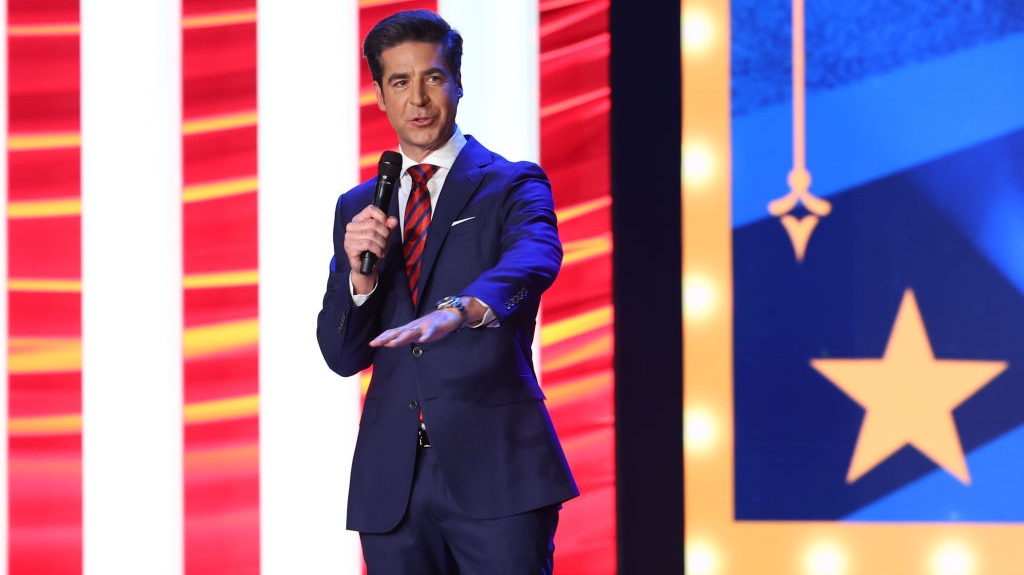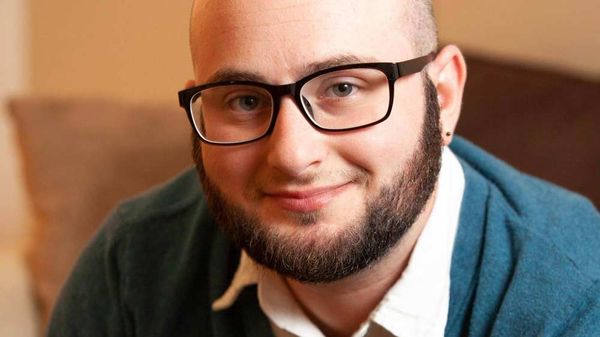October 11, 2007
Local activists take lead role in ENDA debate
David Foucher READ TIME: 9 MIN.
In the wake of the decision by leadership in the House of Representatives two weeks ago to split the federal Employment Non-Discrimination Act (ENDA) into two separate bills, one focused on banning discrimination based on sexual orientation and the other based on gender identity, local transgender activists are playing a central role in responding both to House leadership's strategy and to the decision by the Human Rights Campaign (HRC) not to oppose a non-trans inclusive ENDA bill. Ethan St. Pierre of Haverhill, board president of the National Transgender Advocacy Coalition (NTAC), helped organize a protest outside the Oct. 6 HRC National Dinner in Washington, D.C., which honored House Speaker Nancy Pelosi. The Massachusetts Transgender Political Coalition (MTPC) met with Congressman Barney Frank, one of the architects of the split bill ENDA strategy, Oct. 9 to outline their objections to the strategy and to explain to him the employment discrimination issues faced by transgender people. Meanwhile, Diego Sanchez, longtime trans activist and former co-chair of MTPC, has affirmed that he will remain on the local steering committee of HRC and said he is confident in HRC's commitment to pass a trans-inclusive ENDA bill.
St. Pierre told Bay Windows NTAC organized the protest, which according to an Advocate report drew a crowd of 75 protestors, to show HRC that the LGBT community as a whole is united behind a trans-inclusive ENDA bill. HRC has defended its decision not to oppose the sexual-orientation-only version of ENDA as a necessary step to maintaining the lines of communication with House leadership needed to ultimately pass an inclusive bill (see "Joe Solmonese: 'We're all working towards the same goal,'" page 13), but St. Pierre said that pledging to oppose non-inclusive legislation and maintaining relationships with allies in Congress are not mutually exclusive positions. He credited the United ENDA statement, spearheaded by the National Gay and Lesbian Task Force and signed by more than 300 LGBT organizations across the country pledging to oppose any non-inclusive bills, with convincing House leadership to postpone the mark-up of the sexual orientation version of ENDA from last week until later this month to give advocates more time to lobby for a fully-inclusive bill. (US Rep. Tammy Baldwin said this week that Americans who support a trans-inclusive ENDA needed to call their members of Congress, otherwise the bill will die. See story, page one.)
"The fact that they moved the markup on this bill is actually testament to our whole community calling our legislators and letting them know this is what we need. ... It's because of the dialogue that we've had with Congress that made that happen. So HRC using that as an excuse not to oppose ENDA, it just doesn't make sense," said St. Pierre.
This is not the first time St. Pierre has protested HRC. In 2004 NTAC and other activists protested outside HRC headquarters to demand that the organization publicly support a trans-inclusive ENDA bill; while NTAC protested outside, another group of activists met with HRC board members to urge the organization to take that same step. The board chose to announce its support for a trans-inclusive ENDA bill at that time, and during a speech at last month's Southern Comfort transgender conference in Atlanta HRC executive director Joe Solmonese pledged that the organization would both support a trans-inclusive version of ENDA and oppose non-inclusive legislation. On Oct. 1, under pressure from LGBT activists to sign onto the United ENDA statement, HRC's board voted to reaffirm its support for trans-inclusive legislation and to publicly withhold support from the split bills; the board stopped short of committing to oppose the split bills.
St. Pierre accused HRC of being "deceitful" towards the transgender community for failing to oppose the split ENDA bills.
"We are shocked and surprised - well, some of us are, I'm not - that HRC did what they did, and we need to show our unity to HRC, even though honestly I really believe that the way that we moved Congress, we did it without HRC, and I think they know that we know that," said St. Pierre.
At the local level, MTPC met Oct. 9 with Frank, who along with HRC has borne the brunt of the negative sentiment over the split bill strategy in both op-eds and on LGBT activist blogs and listserves. MTPC co-chair Holly Ryan said that she and other leaders from the organization urged him to abandon the split bill strategy, citing the experience of the efforts to pass trans-inclusive non-discrimination legislation at the state level. Frank has argued that there are not yet enough votes to pass the trans-inclusive version of ENDA, and last week he told Bay Windows that splitting the bills will allow House leadership to pass the sexual orientation bill in the short term and continue educating Congress about employment discrimination against transgender people and build support for a trans-inclusive bill in the long term (see "ENDA Vote Postponed," Oct. 4). Ryan said MTPC told Frank of their own difficulty in passing a trans-inclusive non-discrimination and hate crimes bill in the state legislature this year, an effort that comes almost 20 years after the sexual orientation non-discrimination law passed in Massachusetts.
"At the federal level they're asking us to wait, where in this state we're still waiting for 20 years on a bill that we can't seem to get out of committee or even get a hearing on," said Ryan. She said she told Frank that MTPC fears that passing a non-trans inclusive ENDA could harm the effort to pass the statewide bill in Massachusetts, but she said Frank believed the debate over federal legislation would not have an impact on the state effort.
Ryan said MTPC and Frank ended their meeting agreeing to disagree on his split-bill strategy for ENDA, but she said she believes some good came out of the exchange. She said MTPC talked to Frank about some of the specific employment issues faced by the trans community, chief among them the letters sent by the Social Security Administration (SSA) to employers when the information sent to the SSA about their employees does not match the records attached to those employees' Social Security numbers. She said an employer may get a "no-match" letter from SSA telling them that one of their employees listed as male in their current records was recorded as female in SSA's records, or vice versa, effectively outing the employee as trans to his or her boss.
"[Frank] said that he would definitely work on it to change that. So that was probably the only good thing that came out of it. And the good thing is we had a conversation with him, and passports we talked about too, that it's too hard for us to get passports, and he said he would definitely look into both these issues as it pertains to transgender people in this country," said Ryan.
MTPC co-chair Gunner Scott said that despite assurances from Frank, Pelosi and HRC that they are committed to passing a fully inclusive ENDA bill, he believes that HRC and lawmakers have made a decision to leave the transgender community behind to pass an ENDA bill to cover sexual orientation. He said that lack of concern by gay and lesbian groups for the transgender community is something transgender activists have encountered at the local level as well.
"It's transphobia, bottom line. No one's coming back for the trans community," said Scott, referring to the effort at the national level. "The bill here in Massachusetts is being led by MTPC, and that's because no one here in 18 years thought, we should go and do the trans bill. ... It's the fact that no one came back for us who had power and had privilege to do that. The whole other end of the roller coaster is seeing those almost 200 groups standing up for an inclusive ENDA. That didn't happen back in 2004."
While Scott and other transgender activists expressed distrust for HRC, former MTPC co-chair Sanchez, who remains active with the organization, told Bay Windows he plans to remain on the local HRC steering committee. Following the national board's vote Oct. 1 not to oppose the split bills Donna Rose, the only out transgender member of the board, resigned from her position, although she has retained her position on HRC's business council. Robbi Cohen, who is also transgender, announced this week that she has resigned from HRC's Carolinas steering committee. (See "Donna Rose urges trans community, allies to engage with HRC," page 12.)
"I believe that HRC, and the reason I'm staying, I believe HRC has demonstrated that it is honoring its commitment to be inclusive. I believe that as they stated they want ENDA to be inclusive, and they have a balancing need to continue dialogue with people who might feel otherwise," said Sanchez. He said that both HRC and the hundreds of organizations who signed the United ENDA statement have different roles to play in the push for a trans-inclusive ENDA bill. He compared it to the inside-outside strategy trans activists used to persuade HRC to support a trans-inclusive bill in 2004 (Sanchez was one of the activists meeting inside HRC headquarters with board members while NTAC was leading protests outside).
"There's a need for the ultimate demand of fully inclusive legislation. Balanced with that there is a need for someone who can sit at the table and convince those who need that conversation," said Sanchez.
Beyond the strategic debates over ENDA, local trans activists say the public debate over trans inclusion at the federal level has hit close to home. Grace Sterling Stowell, executive director of Boston Alliance for Gay and Lesbian Youth (BAGLY) and one of the vice-chairs of the Massachusetts Commission on GLBT Youth, said that she has been particularly frustrated to read editorials and blog postings characterizing the transgender rights struggle as a relatively new effort and a new addition to the gay rights agenda.
"It's very painful for a community that I have been part of for 30 years and have been part of advocating for GLB and T services and protections, even in 2007 for there to still be a debate or discussion as to whether we should be fully included at this time," said Stowell.
She said in many cases transgender people have not been visible in the LGBT movement over the years because gay and lesbian people have denied them a seat at the table.
"As one of those people who has waited for 30 years and fought for 30 years, some of those people indicated that we haven't done the work or that we haven't been there all along, on a personal level it hurts. ... It makes me feel like a second-class citizen in the community," said Stowell, who also serves as treasurer of MTPC.
Nancy Nangeroni, communications chair of MTPC and former host of GenderTalk Radio, also said she was disappointed with people who have argued that the trans community has not done enough work at the federal level to make the case for a trans-inclusive bill.
"I think that's very un-American. The idea in a democracy and a free society is everyone enjoys the same rights and not that certain groups of people have to go out and earn their rights. ... We've been doing just as much work as we can and we've certainly been lobbying for 10 years or more. But 10 years ago nobody would talk to us, and it's not our fault that nobody would talk to us," said Nangeroni.
As for how to heal the rifts that have appeared in the wake of the push for a split bill strategy, particularly between HRC and members of the trans community, activists are unsure how HRC can repair that relationship. Joanne Herman, who has worked to build bridges between the trans community and the larger LGBT community as a board member of Gay and Lesbian Advocates and Defenders and the Point Foundation, as well as a columnist for the Advocate, said that with Rose's resignation from HRC's board she is unsure who will step in to serve as a liaison between HRC and the trans community.
"Now no trans person is going to go anywhere near the organization, and I wonder how HRC is going to be able to honestly demonstrate trans-inclusiveness without having someone on staff or on the board. It's a real quandary," said Herman. "I'm sure they had a good reason for taking the action they did, but the way it appeared was bothersome to trans people and made it appear as if they weren't fully behind trans inclusion."
Sanchez said that HRC will show its support for the trans community through its actions.
"I think the proof is in the pudding, and when an inclusive ENDA is delivered, and I believe it will be, then everyone will be able to more fully explain what they needed to do and why," said Sanchez.
David Foucher is the CEO of the EDGE Media Network and Pride Labs LLC, is a member of the National Lesbian & Gay Journalist Association, and is accredited with the Online Society of Film Critics. David lives with his daughter in Dedham MA.







